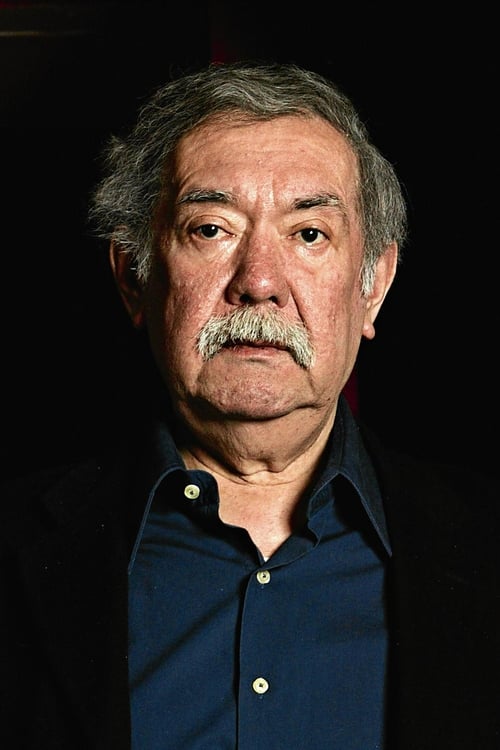
Producer
Una película realizada "para aportar al debate interno del Partido Socialista" como lo rememora el propio Ruiz, y que mostraba cómo un publicista de derecha va radicalizándose hasta convertirse en un ferviente activista de izquierda, y un obrero que realiza el viaje opuesto, pasando de la izquierda dura hasta el derechismo absoluto.

Screenplay
Una película realizada "para aportar al debate interno del Partido Socialista" como lo rememora el propio Ruiz, y que mostraba cómo un publicista de derecha va radicalizándose hasta convertirse en un ferviente activista de izquierda, y un obrero que realiza el viaje opuesto, pasando de la izquierda dura hasta el derechismo absoluto.

Director
Una película realizada "para aportar al debate interno del Partido Socialista" como lo rememora el propio Ruiz, y que mostraba cómo un publicista de derecha va radicalizándose hasta convertirse en un ferviente activista de izquierda, y un obrero que realiza el viaje opuesto, pasando de la izquierda dura hasta el derechismo absoluto.
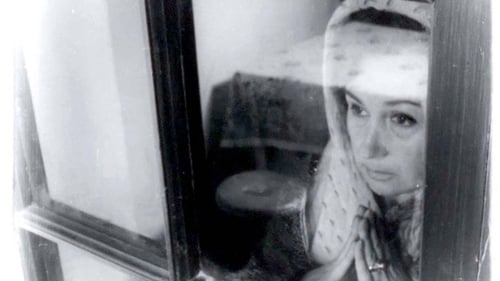
Production Design
El tango del viudo y su espejo deformante es una película en dos tiempos: en 1967, a través de la mirada de Raúl Ruiz, cuando el director chileno realizaba su primera película de ficción a los 27 años; y en 2020, el momento en que Valeria Sarmiento, la viuda del cineasta, rescató las latas en 35 mm y culminó el proceso que Ruiz no pudo hacer durante casi 50 años. Para darles voz a los personajes, un grupo de sordos especialistas en leer los labios descifró cada palabra que pronuncian los actores. La historia también sucede en dos tiempos: luego de atravesar el dolor por el suicidio de su esposa, un profesor se encuentra frente a frente con ella. ¿Es una ilusión? ¿Es el deseo de volver a verla? El protagonista es seguido a sol y a sombra por su amada, ahora convertida en fantasma, y comienza a mimetizarse lentamente con el espectro que lo persigue multiplicando los interrogantes y los misterios que flotan en la enrarecida atmósfera.

Casting
El tango del viudo y su espejo deformante es una película en dos tiempos: en 1967, a través de la mirada de Raúl Ruiz, cuando el director chileno realizaba su primera película de ficción a los 27 años; y en 2020, el momento en que Valeria Sarmiento, la viuda del cineasta, rescató las latas en 35 mm y culminó el proceso que Ruiz no pudo hacer durante casi 50 años. Para darles voz a los personajes, un grupo de sordos especialistas en leer los labios descifró cada palabra que pronuncian los actores. La historia también sucede en dos tiempos: luego de atravesar el dolor por el suicidio de su esposa, un profesor se encuentra frente a frente con ella. ¿Es una ilusión? ¿Es el deseo de volver a verla? El protagonista es seguido a sol y a sombra por su amada, ahora convertida en fantasma, y comienza a mimetizarse lentamente con el espectro que lo persigue multiplicando los interrogantes y los misterios que flotan en la enrarecida atmósfera.

Screenplay
El tango del viudo y su espejo deformante es una película en dos tiempos: en 1967, a través de la mirada de Raúl Ruiz, cuando el director chileno realizaba su primera película de ficción a los 27 años; y en 2020, el momento en que Valeria Sarmiento, la viuda del cineasta, rescató las latas en 35 mm y culminó el proceso que Ruiz no pudo hacer durante casi 50 años. Para darles voz a los personajes, un grupo de sordos especialistas en leer los labios descifró cada palabra que pronuncian los actores. La historia también sucede en dos tiempos: luego de atravesar el dolor por el suicidio de su esposa, un profesor se encuentra frente a frente con ella. ¿Es una ilusión? ¿Es el deseo de volver a verla? El protagonista es seguido a sol y a sombra por su amada, ahora convertida en fantasma, y comienza a mimetizarse lentamente con el espectro que lo persigue multiplicando los interrogantes y los misterios que flotan en la enrarecida atmósfera.

Director
El tango del viudo y su espejo deformante es una película en dos tiempos: en 1967, a través de la mirada de Raúl Ruiz, cuando el director chileno realizaba su primera película de ficción a los 27 años; y en 2020, el momento en que Valeria Sarmiento, la viuda del cineasta, rescató las latas en 35 mm y culminó el proceso que Ruiz no pudo hacer durante casi 50 años. Para darles voz a los personajes, un grupo de sordos especialistas en leer los labios descifró cada palabra que pronuncian los actores. La historia también sucede en dos tiempos: luego de atravesar el dolor por el suicidio de su esposa, un profesor se encuentra frente a frente con ella. ¿Es una ilusión? ¿Es el deseo de volver a verla? El protagonista es seguido a sol y a sombra por su amada, ahora convertida en fantasma, y comienza a mimetizarse lentamente con el espectro que lo persigue multiplicando los interrogantes y los misterios que flotan en la enrarecida atmósfera.

On Raúl Ruiz's missing Taiwanese film "La comédie des ombres" and the projection of Clark's "Double Ghost" at the Chin Pao Shan cemetery on 19 august 2018 (anniversary of Ruiz's death and Clark's birthday).

Self
A documentary recorded during the filming of "The Wandering Soap Opera" by Raúl Ruiz. Made in 1990 and completed 27 years later, in 2017. The film brings closer the approach in Ruiz's directing style and his personal vision of Cinema.
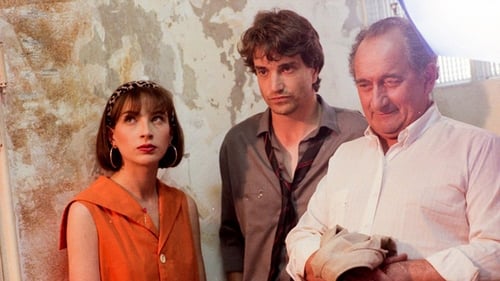
Screenplay
Una de las cintas perdidas de Raoúl Ruiz, concluida por la cineasta y viuda del realizador, Valeria Sarmiento. Realizado en seis días con actores de telenovelas, es un juego en cuanto a instalar la idea de que todo Chile era una "telenovela". La realidad es, literalmente, la idea de Baudrillard sobre el simulacro. Es una colección de sketches jugando con los acentos y patrones del lenguaje en Chile. Ruiz dice: "Los chilenos a veces se pueden hablar sin verbos ni los sujetos, de modo que no podemos saber lo que uno está hablando. "Mi actitud es la de un 'extranjero'. Intenté mostrar cómo Chile se ha convertido en extraño para mí".

Producer
Una de las cintas perdidas de Raoúl Ruiz, concluida por la cineasta y viuda del realizador, Valeria Sarmiento. Realizado en seis días con actores de telenovelas, es un juego en cuanto a instalar la idea de que todo Chile era una "telenovela". La realidad es, literalmente, la idea de Baudrillard sobre el simulacro. Es una colección de sketches jugando con los acentos y patrones del lenguaje en Chile. Ruiz dice: "Los chilenos a veces se pueden hablar sin verbos ni los sujetos, de modo que no podemos saber lo que uno está hablando. "Mi actitud es la de un 'extranjero'. Intenté mostrar cómo Chile se ha convertido en extraño para mí".

Director
Una de las cintas perdidas de Raoúl Ruiz, concluida por la cineasta y viuda del realizador, Valeria Sarmiento. Realizado en seis días con actores de telenovelas, es un juego en cuanto a instalar la idea de que todo Chile era una "telenovela". La realidad es, literalmente, la idea de Baudrillard sobre el simulacro. Es una colección de sketches jugando con los acentos y patrones del lenguaje en Chile. Ruiz dice: "Los chilenos a veces se pueden hablar sin verbos ni los sujetos, de modo que no podemos saber lo que uno está hablando. "Mi actitud es la de un 'extranjero'. Intenté mostrar cómo Chile se ha convertido en extraño para mí".

(archive footage)
(¿Y ahora qué? Recuérdame) narra la lucha del propio director Joaquim Pinto contra el virus del SIDA y la hepatitis C, enfermedades a las que el realizador portugués combate desde hace casi 20 años. El film es la crónica de un año de estudios clínicos con drogas y toxinas aún no aprobadas. Una reflexión abierta y ecléctica sobre el tiempo y la memorias, sobre las pandemias y la globalización, y sobre cómo sobrevivir a las expectativas. (FILMAFFINITY)

Director
Jane appears to be ideal: attractive, intelligent, unruffled by her employer's abrupt eccentricities. But, gradually, we come aware that Jane has another agenda. Incrementally, Sir Paul's familiar surroundings are altered. His housekeeper is diverted away, strange things happen around the house and he becomes increasingly dependent on his new assistant.
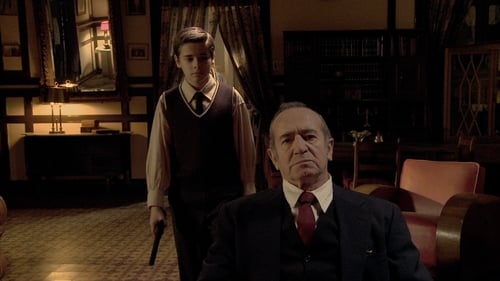
Editor
Un viejo jubilado que espera su inminente muerte, a medias temida, a medias provocada, se pasea por una ciudad medio real y medio soñada, evocando escenas de su infancia, a veces reales, a veces inventadas, que se mueven entre el ensueño y la pesadilla. (FILMAFFINITY)

Writer
Un viejo jubilado que espera su inminente muerte, a medias temida, a medias provocada, se pasea por una ciudad medio real y medio soñada, evocando escenas de su infancia, a veces reales, a veces inventadas, que se mueven entre el ensueño y la pesadilla. (FILMAFFINITY)

Director
Un viejo jubilado que espera su inminente muerte, a medias temida, a medias provocada, se pasea por una ciudad medio real y medio soñada, evocando escenas de su infancia, a veces reales, a veces inventadas, que se mueven entre el ensueño y la pesadilla. (FILMAFFINITY)

Self
La casa del realizador tiene una puerta que da a la vereda. Esta puerta separa el interior del exterior. El interior contiene la historia personal del realizador y su mundo de objetos, pensamientos e imaginaciones. El espacio exterior contiene la ciudad de Santiago de Chile. Las historias del mundo interior de la casa son interrumpidas cuando desconocidos tocan el timbre y de ese modo entran en la película.

Writer
In one of his very last projects, Raul Ruiz celebrates the films of his historical predecessor Jean Painlevé, a documentary innovator whose work always blended science with surrealism. Ruiz and friends further perfect the art of mystification. Why it is so difficult to count fish in an aquarium? Ruiz, his loyal actor Melvil Poupaud and his producer François Margolin come up with a wide range of hypotheses. With their bone-dry wit, they keep up the tradition of the French pataphysics: the science of imaginary solutions. (IFFR)

Director
In one of his very last projects, Raul Ruiz celebrates the films of his historical predecessor Jean Painlevé, a documentary innovator whose work always blended science with surrealism. Ruiz and friends further perfect the art of mystification. Why it is so difficult to count fish in an aquarium? Ruiz, his loyal actor Melvil Poupaud and his producer François Margolin come up with a wide range of hypotheses. With their bone-dry wit, they keep up the tradition of the French pataphysics: the science of imaginary solutions. (IFFR)

In one of his very last projects, Raul Ruiz celebrates the films of his historical predecessor Jean Painlevé, a documentary innovator whose work always blended science with surrealism. Ruiz and friends further perfect the art of mystification. Why it is so difficult to count fish in an aquarium? Ruiz, his loyal actor Melvil Poupaud and his producer François Margolin come up with a wide range of hypotheses. With their bone-dry wit, they keep up the tradition of the French pataphysics: the science of imaginary solutions. (IFFR)

Writer
A coin and a cup of coffee on a table top. Raúl Ruiz gets the most from this minimal set-up, both visually and through the laconic soundtrack.

Don Fernando (voice)
A coin and a cup of coffee on a table top. Raúl Ruiz gets the most from this minimal set-up, both visually and through the laconic soundtrack.

Director
A coin and a cup of coffee on a table top. Raúl Ruiz gets the most from this minimal set-up, both visually and through the laconic soundtrack.

In the fall of 2010, Bozon and co-conspirator Pascale Bodet commandeered the first floor of Paris’s famed Centre Pompidou for 10 days of screenings, lectures and performances that amounted to a counter-canonical history of French cinema. During the ensuing merriment (entitled Beaubourg, la dernière Major !) audience members were invited to observe the daily making of this film, directed by Bozon and written by Axelle Ropert, about an inexperienced young journalist (Laure Marsac) sent to the Pompidou to interview a maverick artistic impresario (Thomas Chabrol). The result is an unexpected love story that is also a record of this landmark exhibition, featuring cameos by Raul Ruiz, Paul Vecchiali, Luc Moullet and more !

Director
La trágica historia de las numerosas vidas del padre Dinis, sus oscuros orígenes y sus piadosas obras, y los diferentes destinos de todos aquellos que, atrapados en una siniestra red de amor, odio y crimen, se cruzan con él a través de años de aventuras y desgracias en la convulsa Europa de finales del siglo XVIII y principios del XIX.

Writer
After long decades of exile, a leftist former activist returns to Chile to settle accounts with his conscience, related to the death of a colleague and political hero . The task of Atalibar is to reveal his secret. But his view clashes with the current country, godless, far from the old ideologies and where all his old colleagues have changed.

Production Design
Surreal gothic comedy about a gambler who wins a strange Chilean mansion and takes his frail wife there.

Screenplay
Surreal gothic comedy about a gambler who wins a strange Chilean mansion and takes his frail wife there.

Director
Surreal gothic comedy about a gambler who wins a strange Chilean mansion and takes his frail wife there.
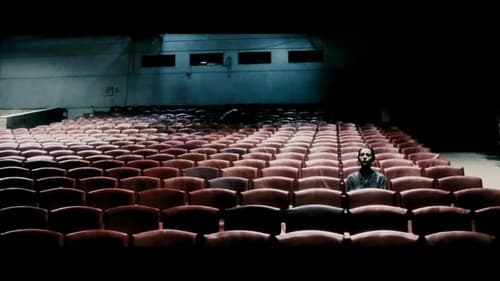
Director
Reunión de 33 cortometrajes de unos tres minutos cada uno realizados por 35 directores con motivo del 60 aniversario del Festival de Cannes.
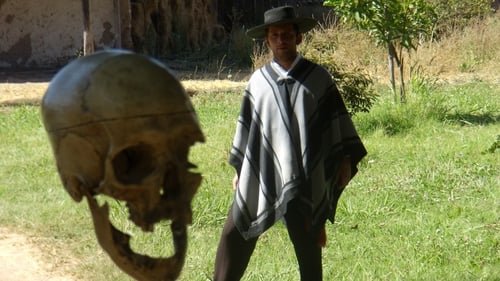
Writer
This was a man. He lived with his mother. He cared a manor house in the countryside of Chile. One day the man found a bone in the garden. The bone was bored. That was a bone flute. The man with the flute music play. And music song became. The voice of the song begging to seek the other bones of his scattered body. The man and his mother were in those ways of God and hell, looking for the bones that make up the skeleton of that Christian. And give him a Christian burial. And they saw what they saw, they lived what they lived. Many stories lived. And although they did not tell anyone, others told them.

Director
This was a man. He lived with his mother. He cared a manor house in the countryside of Chile. One day the man found a bone in the garden. The bone was bored. That was a bone flute. The man with the flute music play. And music song became. The voice of the song begging to seek the other bones of his scattered body. The man and his mother were in those ways of God and hell, looking for the bones that make up the skeleton of that Christian. And give him a Christian burial. And they saw what they saw, they lived what they lived. Many stories lived. And although they did not tell anyone, others told them.

Director
A blind man tells his niece about the time he screened Casablanca to a rural village.
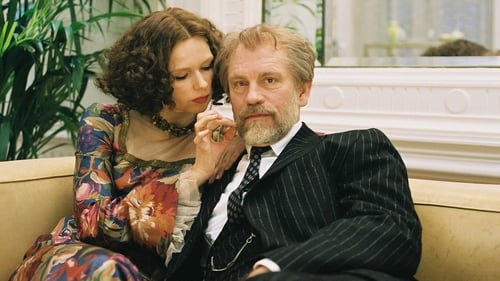
Writer
Retrato del artista austríaco Gustav Klimt, cuyos suntuosos y eróticos cuadros marcaron el estilo Art Nouveau de finales del siglo XIX y principios del XX.

Director
Retrato del artista austríaco Gustav Klimt, cuyos suntuosos y eróticos cuadros marcaron el estilo Art Nouveau de finales del siglo XIX y principios del XX.
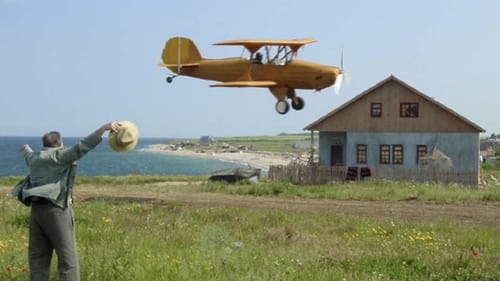
Writer
En 1932, cuando Max tenía 10 años, lo despertó un avión que aterrizó al lado de su casa. No podía imaginar entonces que el piloto Antoine no sólo le abriría los ojos a la belleza del mundo, sino que, además, lo conduciría desde la Segunda Guerra Mundial (1939-1945) hasta las cárceles del Chile de Pinochet (años 70). También ignoraba que el libro titulado "El gran Meaulnes", sería el eslabón que los uniría. (FILMAFFINITY)

Director
En 1932, cuando Max tenía 10 años, lo despertó un avión que aterrizó al lado de su casa. No podía imaginar entonces que el piloto Antoine no sólo le abriría los ojos a la belleza del mundo, sino que, además, lo conduciría desde la Segunda Guerra Mundial (1939-1945) hasta las cárceles del Chile de Pinochet (años 70). También ignoraba que el libro titulado "El gran Meaulnes", sería el eslabón que los uniría. (FILMAFFINITY)

Screenplay
In a bar in Santiago, two old men talk over their past. This is a strange discussion. In fact, they talk of themselves as if they were dead. We don't know what is true or false, what is dream or reality.

Director
In a bar in Santiago, two old men talk over their past. This is a strange discussion. In fact, they talk of themselves as if they were dead. We don't know what is true or false, what is dream or reality.

Director

Director
A chronicle of Raúl Ruiz’s production of Michèle Reverdy’s opera “Médée”.

Writer
Un escritor de novelillas, se debate entre su talento, los críticos y su mediocre existencia, hasta que un día es contactado por un hombre recto. Él dice ser un asesino en serie, también ser un admirador de su estilo y que le pagará muy bien si escribe una relación verdadera de sus andanzas parisinas de delirio y muerte.

Director
Un escritor de novelillas, se debate entre su talento, los críticos y su mediocre existencia, hasta que un día es contactado por un hombre recto. Él dice ser un asesino en serie, también ser un admirador de su estilo y que le pagará muy bien si escribe una relación verdadera de sus andanzas parisinas de delirio y muerte.

Writer
Un relato policíaco, a medio camino entre el teatro del absurdo y el cine de Hitchcock, centrado en la insólita relación que se establece entre una ingenua heredera que ve ángeles por todas partes y que, además, ha pronosticado que el día siguiente será el mejor día de su vida, y un asesino psicópata que acaba de escaparse del manicomio y que acaba haciéndose amigo suyo.

Director
Un relato policíaco, a medio camino entre el teatro del absurdo y el cine de Hitchcock, centrado en la insólita relación que se establece entre una ingenua heredera que ve ángeles por todas partes y que, además, ha pronosticado que el día siguiente será el mejor día de su vida, y un asesino psicópata que acaba de escaparse del manicomio y que acaba haciéndose amigo suyo.

Director of Photography
An experimental four-part 2002 Franco-Chilean digital video series written and directed by Raúl Ruiz. The first part won a FIPRESCI Award at the Montreal World Film Festival in 2002 "for the director's personal exploration into his homeland, using DV in a rigorous yet playful manner".

Narrator
An experimental four-part 2002 Franco-Chilean digital video series written and directed by Raúl Ruiz. The first part won a FIPRESCI Award at the Montreal World Film Festival in 2002 "for the director's personal exploration into his homeland, using DV in a rigorous yet playful manner".

Editor
An experimental four-part 2002 Franco-Chilean digital video series written and directed by Raúl Ruiz. The first part won a FIPRESCI Award at the Montreal World Film Festival in 2002 "for the director's personal exploration into his homeland, using DV in a rigorous yet playful manner".

Producer
An experimental four-part 2002 Franco-Chilean digital video series written and directed by Raúl Ruiz. The first part won a FIPRESCI Award at the Montreal World Film Festival in 2002 "for the director's personal exploration into his homeland, using DV in a rigorous yet playful manner".

Writer
An experimental four-part 2002 Franco-Chilean digital video series written and directed by Raúl Ruiz. The first part won a FIPRESCI Award at the Montreal World Film Festival in 2002 "for the director's personal exploration into his homeland, using DV in a rigorous yet playful manner".

Director
An experimental four-part 2002 Franco-Chilean digital video series written and directed by Raúl Ruiz. The first part won a FIPRESCI Award at the Montreal World Film Festival in 2002 "for the director's personal exploration into his homeland, using DV in a rigorous yet playful manner".

Director
In the early 2000s filmmaker Raul Ruiz followed painter Jean Miotte to different locations (New York, France, Germany).
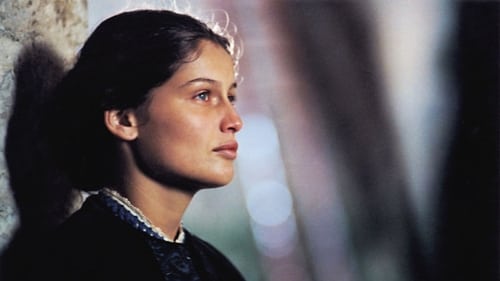
Director
Fermin y Therese fueron una joven pareja que huyó para poder estar solos, afincándose en Chatillón. Therese empezó a trabar una buena amistad con la familia Numance, una de las más distinguidas de la ciudad, y la joven comenzó a valorar la libertad de su vida y la voluntad de sus propias decisiones. Esto no gustó a Fermín, quien acaba por trastocar el carácter de Therese.

Writer
Camille, quien acaba de cumplir nueve años, es un niño precoz e inteligente, y fanático de las videocamaras. Después de actuar de una manera muy extraña en su cumpleaños, Camille asusta a su madre insistiendo que ella no es su madre verdadera. Se dirige a ella como "Ariane" y le convence para llevarle a casa de Isabella, su madre verdadera. Isabella reclama a Camille como su hijo a pesar del hecho que su hijo Paul se ahogó hace dos años. Y así empieza la extraña relación entre las dos mujeres y el niño... ¿Es Ariane realmente la madre de Camille? ¿Que influencia tiene Isabella sobre el niño?

Director
Camille, quien acaba de cumplir nueve años, es un niño precoz e inteligente, y fanático de las videocamaras. Después de actuar de una manera muy extraña en su cumpleaños, Camille asusta a su madre insistiendo que ella no es su madre verdadera. Se dirige a ella como "Ariane" y le convence para llevarle a casa de Isabella, su madre verdadera. Isabella reclama a Camille como su hijo a pesar del hecho que su hijo Paul se ahogó hace dos años. Y así empieza la extraña relación entre las dos mujeres y el niño... ¿Es Ariane realmente la madre de Camille? ¿Que influencia tiene Isabella sobre el niño?
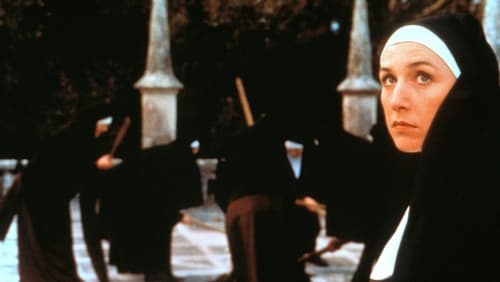
Screenplay
A serious young man of free spirit is forced by his surroundings to become rich at all costs. A group of blind children tries to open the eyes of the unbelievers to the Christian faith. Retired nuns who open a brothel, to pay the running costs of the convent. These rather ironic paradoxes turn this fairytale into a philosophical fable.

Director
A serious young man of free spirit is forced by his surroundings to become rich at all costs. A group of blind children tries to open the eyes of the unbelievers to the Christian faith. Retired nuns who open a brothel, to pay the running costs of the convent. These rather ironic paradoxes turn this fairytale into a philosophical fable.

Scenario Writer
Marcel Proust (1871-1922) está en su lecho de muerte. Ver fotografías trae recuerdos de su infancia, su juventud, sus amantes y la forma en que la Gran Guerra puso fin a un estrato social. Sus recuerdos no están en un orden particular, se mueven hacia adelante y hacia atrás en el tiempo. Marcel en varias edades interactúa con Odette, con la bella Gilberte y su marido condenado, con el barón de Charlus que busca el placer, con la amante de Marcel Albertine y con otros; presentes también en la memoria están la querida madre y abuela de Marcel. Parece como si vivir es recordar y capturar recuerdos es crear una obra de gran arte. Los recuerdos son paralelos al volumen final de la novela de Proust.

Director
Marcel Proust (1871-1922) está en su lecho de muerte. Ver fotografías trae recuerdos de su infancia, su juventud, sus amantes y la forma en que la Gran Guerra puso fin a un estrato social. Sus recuerdos no están en un orden particular, se mueven hacia adelante y hacia atrás en el tiempo. Marcel en varias edades interactúa con Odette, con la bella Gilberte y su marido condenado, con el barón de Charlus que busca el placer, con la amante de Marcel Albertine y con otros; presentes también en la memoria están la querida madre y abuela de Marcel. Parece como si vivir es recordar y capturar recuerdos es crear una obra de gran arte. Los recuerdos son paralelos al volumen final de la novela de Proust.

Director
Una joven, bella y rica heredera se puede convertir, de repente, en una fría y calculadora asesina. Ni ella misma puede diferenciar sus dos personalidades, sólo puede afirmar que cuando asume una de ellas, en sus sueños aparece su otro yo. Pero esta doblepersonalidad va a ser crucial para su futuro: en plena luna de miel descubre que su marido está planeando asesinarla y su faceta perversa sale a la luz.

Writer
Madeleine is with her lover, Jean-Paul, when her husband arrives home and catches the two together. Madeleine kills her husband and tells Jean-Paul to flee before the police arrive. After Jean-Paul drives away, he picks up a hitchhiker. When the car, stolen by the hitchhiker, explodes, police believe the dead hitchhiker is Jean-Paul. Madeleine takes up with Jean-Paul's brother, Bastien, while Jean-Paul, arriving in Strasbourg, is mistaken for the heir to a fortune. The detective on the case spends more time writing crime novels than investigating real-life crimes.
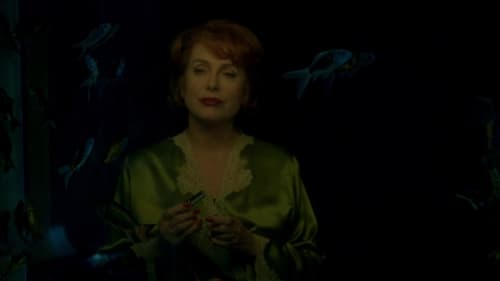
Writer
Una abogada famosa por aceptar casos perdidos, decide defender a un joven acusado de matar a su tía psicoanalista. Todas las pruebas están en su contra, pero ciertos aspectos del crimen -como el extenso estudio que la muerta hizo de la psiquis del joven- van conformando una maraña de pistas y falsas pruebas.

Director
Una abogada famosa por aceptar casos perdidos, decide defender a un joven acusado de matar a su tía psicoanalista. Todas las pruebas están en su contra, pero ciertos aspectos del crimen -como el extenso estudio que la muerta hizo de la psiquis del joven- van conformando una maraña de pistas y falsas pruebas.

Writer
If any single piece can act as a key to Ruiz, it may be the 1997 short Le Film à Venir (The Film to Come). The titular film is a holy fragment of celluloid that can only be seen by a secret society known as the Philokinetes. They watch it on a loop, somnambulating through a life that is unreal by comparison. It is the belief of the Philokinetes that film has an existence “independent from humans. Cinema, they said, is the primeval soup of a new life form. There from were to emerge pure screening creatures. Which is to say, non-topical beings.” - n+1

Director
If any single piece can act as a key to Ruiz, it may be the 1997 short Le Film à Venir (The Film to Come). The titular film is a holy fragment of celluloid that can only be seen by a secret society known as the Philokinetes. They watch it on a loop, somnambulating through a life that is unreal by comparison. It is the belief of the Philokinetes that film has an existence “independent from humans. Cinema, they said, is the primeval soup of a new life form. There from were to emerge pure screening creatures. Which is to say, non-topical beings.” - n+1

Screenplay
The story of a neurotic bachelor who, after marrying a beautiful woman, submits her to increasingly deranged accusations of infidelity and pleas for forgiveness.
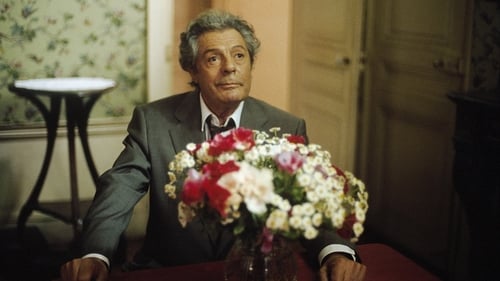
Writer
En París suceden tres historias que, en principio, parece que no tienen nada que ver entre sí. Un viajante sale a comprar cerillas y regresa veinte años más tarde. Un catedrático de Universidad se hace pasar por mendigo. Finalmente, un hombre de negocios se inventa una familia ficticia en el extranjero para ocultar oscuros asuntos financieros.

Director
En París suceden tres historias que, en principio, parece que no tienen nada que ver entre sí. Un viajante sale a comprar cerillas y regresa veinte años más tarde. Un catedrático de Universidad se hace pasar por mendigo. Finalmente, un hombre de negocios se inventa una familia ficticia en el extranjero para ocultar oscuros asuntos financieros.

Director
Anthology of short films about the French city of Nice, by various directors. A homage to Jean Vigo and his "À propos de Nice" from 1930.

Writer
Pierre, a middle-aged tourist guide, is the victim of a sudden failure : he does not recognize anything about him any longer. He goes back home and in his apartment he finds a mysterious young man who tells him he is here to avenge a young woman who has taken her own life. What share of responsibility does Pierre hold in this situation?

Director
Pierre, a middle-aged tourist guide, is the victim of a sudden failure : he does not recognize anything about him any longer. He goes back home and in his apartment he finds a mysterious young man who tells him he is here to avenge a young woman who has taken her own life. What share of responsibility does Pierre hold in this situation?
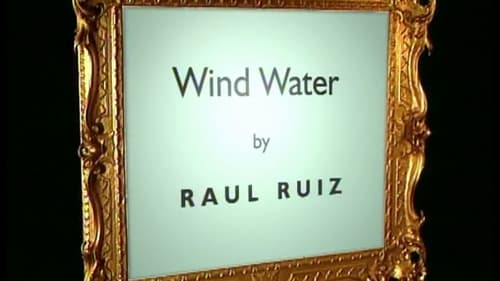
Writer
In Wind Water, Ruiz stages a three-way dialogue between three great cultures: the West, China and Arabia. He imagines what might occur if Shih-T’ao’s six poetic procedures for attaining the primal respiration or cosmic breath in painting were applied to one of the flagships of Western art, Velazquez’s Las Meninas. Ruiz wants the three cultures to interact and test each other like the paper, stone and scissors of the children’s game. The result is an insoluble dispute, a différend. No reconciliation or compromise is possible between these cultural outlooks.

Director
In Wind Water, Ruiz stages a three-way dialogue between three great cultures: the West, China and Arabia. He imagines what might occur if Shih-T’ao’s six poetic procedures for attaining the primal respiration or cosmic breath in painting were applied to one of the flagships of Western art, Velazquez’s Las Meninas. Ruiz wants the three cultures to interact and test each other like the paper, stone and scissors of the children’s game. The result is an insoluble dispute, a différend. No reconciliation or compromise is possible between these cultural outlooks.

Writer
A wild short made as part of a filmmaking workshop that Raúl Ruiz ran in Bogotá in October 1993.

Director
A wild short made as part of a filmmaking workshop that Raúl Ruiz ran in Bogotá in October 1993.

Screenplay
A surreal travel drama, shot on Sicility with Italian actors. IlViaggio Clandestino is a film about saints and sinners. Whether you areblessed or doomed is often dependent on someone's soul that on whether theypray or suffer. The kindred spirit of San Gil ! the Holy Gil ! is CiccioBavaria who, unilke the former, continues to seek sin. For Bavaria sin isliberating and dynamic. The film tells the story of the journey made by thesetwo protagonists; a journey that leads to the demise of San Gil, while Bavariais reincarnated as Buddha. There is another traveller, a clandestinetraveller. Christ, always fleeing the angels. This Christ does not helphumanity with miracles, but by keeping himself alive as best he can givingweather forecasts.In this strange sainty story, Ruiz allowed himself ot be inspired byapocryphal books about saints of flesh and blood.

Director
A surreal travel drama, shot on Sicility with Italian actors. IlViaggio Clandestino is a film about saints and sinners. Whether you areblessed or doomed is often dependent on someone's soul that on whether theypray or suffer. The kindred spirit of San Gil ! the Holy Gil ! is CiccioBavaria who, unilke the former, continues to seek sin. For Bavaria sin isliberating and dynamic. The film tells the story of the journey made by thesetwo protagonists; a journey that leads to the demise of San Gil, while Bavariais reincarnated as Buddha. There is another traveller, a clandestinetraveller. Christ, always fleeing the angels. This Christ does not helphumanity with miracles, but by keeping himself alive as best he can givingweather forecasts.In this strange sainty story, Ruiz allowed himself ot be inspired byapocryphal books about saints of flesh and blood.

Director
Tunisia itself is the subject; we wanted to render the genius of the site. Tunisia is almost the central character of this little film: we see the relation of the city to the sea, the traces that bear witness to its foundation, the remains of Carthage, the symbolism of the recently discovered Medina coin … The splendours of the house interiors and courtyards are associated with a scene of origin, what psychoanalysis calls a primal scene. Entering these houses opens up a world peopled by women: the child’s ‘homecoming’ in the hands of women is staged as an abduction, playing doubly on fascination and terror. These places were mine, from my childhood, they can be found almost intact – it’s the return of the exile visiting the kingdom. I let Ruiz discover all this, and immediately that led him to echoes and resonances ranging from Spain to Chile.

Writer
Ven a la Villa de los Perros, es fácil de encontrar. Sólo tienes que seguir la avenida con muletas y prótesis de piernas colgando de los árboles. Es el lugar donde la Virgen María sigue apareciendo en el cielo. Y donde la diversión del Marqués es enterrar viva a la gente, la cual a veces es rescatada por Ellic... y a veces no.

Narrator
Chile is seen through the eyes of a Chinese painter - a traditional painter who uses the concepts of XVIII century Shih-T'ao.

Director
Chile is seen through the eyes of a Chinese painter - a traditional painter who uses the concepts of XVIII century Shih-T'ao.

Director
Ven a la Villa de los Perros, es fácil de encontrar. Sólo tienes que seguir la avenida con muletas y prótesis de piernas colgando de los árboles. Es el lugar donde la Virgen María sigue apareciendo en el cielo. Y donde la diversión del Marqués es enterrar viva a la gente, la cual a veces es rescatada por Ellic... y a veces no.

Adaptation
A well-bred young woman who prizes the virtue of fidelity remains faithful to the doctor who deflowers her, even after he marries her invalid sister.

Writer
A well-bred young woman who prizes the virtue of fidelity remains faithful to the doctor who deflowers her, even after he marries her invalid sister.

Writer
All the characters are in hell, but they act as though the are in a sitcom, with canned laughter. It's based on Arcana Celestia by Swedenborg, a Swedish esoteric theologian from the 18th Century who started seeing ghosts, angels and demons around him. Instead of seeing a physician about it, he accepted the fact and began studying and interviewing his own hallucinations, like an anthropologist. He was convinced that people in hell are happy, because you find what you want there.

Director
All the characters are in hell, but they act as though the are in a sitcom, with canned laughter. It's based on Arcana Celestia by Swedenborg, a Swedish esoteric theologian from the 18th Century who started seeing ghosts, angels and demons around him. Instead of seeing a physician about it, he accepted the fact and began studying and interviewing his own hallucinations, like an anthropologist. He was convinced that people in hell are happy, because you find what you want there.

Director
These six video segments (10 minutes each) were originally developed for broadcast on Channel 4 as the second installment in the larger, never completed, series comissioned for Peter Greenaway and Tom Philips' A TV Dante (1989). But it was never aired. Ruiz's treatment of the six Cantos can be taken together as a bridge between his previous visions of hell in Mémoire des apparences AKA Life is a Dream (1986) and La Chouette aveugle (1987) and themore recent series of essay videos that he has made for Chilean television under the title Cofralandes (2002).

Producer
El arte de poner los cuernos es una película mexicana producida en 1991. Fue dirigida por Felipe Pérez y contó con la actuación de Charly Valentino, Guillermo Rivas, José Natera, Jacaranda Alfaro, Anaís de Melo.

Writer
Inspired in form by American police TV shows and soap operas, The Golden Boat is a madcap, surreal dash through the streets of New York city, telling the mysterious and often hilarious story of an aged street-person named Austin, a comically compulsive assassin, as he joins up with a young rock critic and philosophy student named Israel Williams. In the course of their adventures, Austin pursues his object of desire - a Mexican soap opera star - and along the way engages a host of TV characters and bit players, whose repartee range from gangsterish insults to the question of God's existence.

Director
Inspired in form by American police TV shows and soap operas, The Golden Boat is a madcap, surreal dash through the streets of New York city, telling the mysterious and often hilarious story of an aged street-person named Austin, a comically compulsive assassin, as he joins up with a young rock critic and philosophy student named Israel Williams. In the course of their adventures, Austin pursues his object of desire - a Mexican soap opera star - and along the way engages a host of TV characters and bit players, whose repartee range from gangsterish insults to the question of God's existence.

Writer
Brise-glace está compuesta de tres partes originales filmadas durante los viajes del barco rompe hielos Frej, de la marina sueca, en Marzo de 1986.

Director
Brise-glace está compuesta de tres partes originales filmadas durante los viajes del barco rompe hielos Frej, de la marina sueca, en Marzo de 1986.

Director
A series of philosophical dialogues on friendship, architecture, electricity, cannibalism and human rights.

Alter ego of the Catholic nagger
A causa de un accidente, Michele, jugador de waterpolo, pierde la memoria. Durante un partido, unos desconocidos empiezan a presionarlo con el fin de que recuerde su pasado. Cuando el partido está a punto de acabar, Michele se dispone a lanzar un penalti del que depende el empate para su equipo.

Writer
From the construction of a sculpture "life size" in the earth, the director Boris Lehman imagines a story that staged a sculptor (Paulus Brun) struggling with an impossible order. The man of land is "golemise", takes life in the countryside, and ends up dying on an opera stage.

Writer
H., 35, an Arabian immigrant, works as projectionist in an old cinema. One day, drawn by the music, he looks through the window of the booth and is fascinated: the dancer he sees on the screen seems to be looking straight into his eyes. He falls in love with her, but the vision last only a moment. Shortly afterwards, an elderly man storms into the projection booth and claims he is his uncle.
H. wants to prepare a meal for him and reaches for the oil bottle: he sees the same dancer on the label…. H begins to find echoes of his own life in the images he projects. Everything changes when fiction and reality merge...

Director
H., 35, an Arabian immigrant, works as projectionist in an old cinema. One day, drawn by the music, he looks through the window of the booth and is fascinated: the dancer he sees on the screen seems to be looking straight into his eyes. He falls in love with her, but the vision last only a moment. Shortly afterwards, an elderly man storms into the projection booth and claims he is his uncle.
H. wants to prepare a meal for him and reaches for the oil bottle: he sees the same dancer on the label…. H begins to find echoes of his own life in the images he projects. Everything changes when fiction and reality merge...

Writer
Third and final part of collaborative project Brise Glace. Directed by Raúl Ruíz.

Director
Third and final part of collaborative project Brise Glace. Directed by Raúl Ruíz.

Writer
A baroque mix of revolutionary politics, pop culture and semiotics loosely based on the play by Pedro Calderón de la Barca. A young prince learns that life is just a dream from which we wake when we die. And that dreams may be as real as life.

Director
A baroque mix of revolutionary politics, pop culture and semiotics loosely based on the play by Pedro Calderón de la Barca. A young prince learns that life is just a dream from which we wake when we die. And that dreams may be as real as life.

Writer
Professor Taranne, a conceited university Professor, is subject to several absurd and disquieting incidents from the world surrounding him. He is being accused of things he couldn't have been doing. He starts doubting himself - a self that might be fragmented or multiple.

Director
Professor Taranne, a conceited university Professor, is subject to several absurd and disquieting incidents from the world surrounding him. He is being accused of things he couldn't have been doing. He starts doubting himself - a self that might be fragmented or multiple.
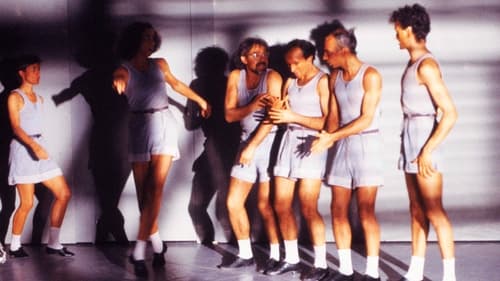
Writer
A Ruizian adaptation of Jean-Claude Gallotta's iconic wordless ballet choreography.

Director
A Ruizian adaptation of Jean-Claude Gallotta's iconic wordless ballet choreography.

Writer
A man comes to visit an acquaintance who is supposed to be sick and talks to his sister while he is waiting.

Director
A man comes to visit an acquaintance who is supposed to be sick and talks to his sister while he is waiting.

Director
Richard of Gloucester uses murder and manipulation to claim England's throne.
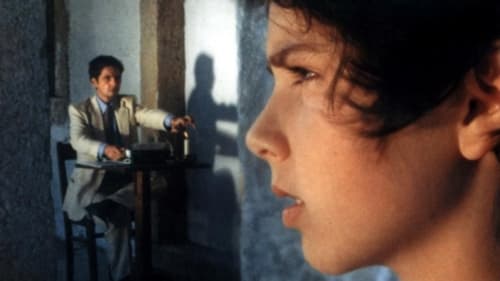
Writer
Jim is a small child who lives in an inn run by his parents. The arrival of a strange captain to the Island they live will trouble his existence and tip him into an universe of adventures.

Director
Jim is a small child who lives in an inn run by his parents. The arrival of a strange captain to the Island they live will trouble his existence and tip him into an universe of adventures.

Screenplay
This quickly-filmed avant-garde farce by prolific director Raul Ruiz features an insomniac (Michel Lonsdale) whose main preoccupation is surreptitiously watching private matters -- he is a voyeur. He and an equally disreputable acquaintance rape a woman alongside the Seine, a crime made all the worse because she is pregnant. The rest of this slow-paced film deals with the consequences of that action.

Director
This quickly-filmed avant-garde farce by prolific director Raul Ruiz features an insomniac (Michel Lonsdale) whose main preoccupation is surreptitiously watching private matters -- he is a voyeur. He and an equally disreputable acquaintance rape a woman alongside the Seine, a crime made all the worse because she is pregnant. The rest of this slow-paced film deals with the consequences of that action.

Marinero
A fire started by Harry Thompson destroys the Liguria, a legendary ship of the 19th century, and its treasure of gold and diamonds sinks in the sea. Thompson manages to escape unaware that Albizetti sleeps in the same lifeboat he uses. They manage to arrive at a deserted island, which has also been reached on the opposite shore– by the other survivors of the shipwreck: three children, a woman and three men.

Director
Régime sans pain, influenced by (Ruiz's) friend Jean Baudrillard (and calling) to mind grade-Z SF, grew out of a commission to direct a music video (featuring French cult rock duo of Angèle/Maimone). Ruiz offered a counterproposal that he direct several music videos rather than one; once this deal was made, he shot enough material to interconnect the various videos until he arrived at a feature.

Screenplay
A sickly young girl is given away by her father to a childless couple. Twenty years later, she marries her adopted father.

This eccentric short directed by Keith Griffiths, outlines Ruiz’s work, biography and preoccupations and includes a rare interview with the director.

Self
Short film showing cinematographer Henri Alekan, director Raúl Ruiz and actress Olimpia Carlisi at work creating sublime visual effects of the sort seen in City of Pirates.

Director
Short film showing cinematographer Henri Alekan, director Raúl Ruiz and actress Olimpia Carlisi at work creating sublime visual effects of the sort seen in City of Pirates.

Writer
When the child Manuel wanders into a garden that is off-limits to him, he meets an unidentified fisherman, and another boy -- the boy is actually himself several years down the road. Manuel experiences three different versions of his encounters in the garden, revealing that fate can have several twists and turns in one's life, depending on decisions that are made early on.

Director
When the child Manuel wanders into a garden that is off-limits to him, he meets an unidentified fisherman, and another boy -- the boy is actually himself several years down the road. Manuel experiences three different versions of his encounters in the garden, revealing that fate can have several twists and turns in one's life, depending on decisions that are made early on.

Director
In Voyage of a Hand, Ruiz constructs another of his concentric labyrinths that hits us right in the multifaceted center of our confusion. We might decide that what we receive was a story full of intentions; or we might decide that it was a spineless joke empty of sense or direction. In any case, it will be difficult to deny the acid sense of humor that animates the film.

Director
Ruiz on the film: "I began La présence réelle (The Real Presence) first. I. N. A. had commissioned me to produce a personal vision of the Festival d'Avignon. This became a fiction about the theater because if I had filmed the actual performances at Avignon I would have had to respect their staging, I would not be able to change anything. As such, I wouldn't be doing anything more than a retransmission of Antenne 2 or FR3. And since a lot would have to be paid for rights to each play, it would end up costing as much as a fiction feature. So it is a story about the theater, a bit Rivette-ish. I shot all the exteriors in Avignon, the interiors in Paris a few days later and I finish the film next Tuesday."

Screenplay
An island retreat. A man, his face bandaged, plays cards nonchalantly. His ex-wife arrives. Conversations happen. (Mubi)

Director
An island retreat. A man, his face bandaged, plays cards nonchalantly. His ex-wife arrives. Conversations happen. (Mubi)
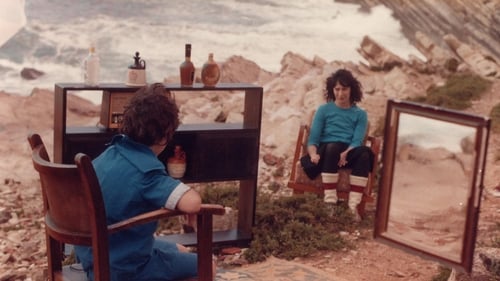
Screenplay
Isidore es una mujer que vive con sus padres adoptivos. Su padre espera que ella se suicide, pero por el contrario, Isidore irá conociendo a extraños personajes que la acompañarán en un viaje metafísico y criminal.

Director
Isidore es una mujer que vive con sus padres adoptivos. Su padre espera que ella se suicide, pero por el contrario, Isidore irá conociendo a extraños personajes que la acompañarán en un viaje metafísico y criminal.

Small Role (uncredited)
La película comienza con una premisa: un estudiante debe salir de Francia pues ha cometido una ilegalidad, un marinero le ofrece su puesto en un buque mercante que está por zarpar, pero a cambio de que escuche su historia. A partir de ahí, el relato no arranca verdaderamente, sino que explota, estalla en múltiples relatos de la vida del marinero y sus encuentros con diversos personajes (un ciego, una bailarina, un hombre de 90 años, un intelectual, entre otros).

Writer
La película comienza con una premisa: un estudiante debe salir de Francia pues ha cometido una ilegalidad, un marinero le ofrece su puesto en un buque mercante que está por zarpar, pero a cambio de que escuche su historia. A partir de ahí, el relato no arranca verdaderamente, sino que explota, estalla en múltiples relatos de la vida del marinero y sus encuentros con diversos personajes (un ciego, una bailarina, un hombre de 90 años, un intelectual, entre otros).

Director
La película comienza con una premisa: un estudiante debe salir de Francia pues ha cometido una ilegalidad, un marinero le ofrece su puesto en un buque mercante que está por zarpar, pero a cambio de que escuche su historia. A partir de ahí, el relato no arranca verdaderamente, sino que explota, estalla en múltiples relatos de la vida del marinero y sus encuentros con diversos personajes (un ciego, una bailarina, un hombre de 90 años, un intelectual, entre otros).

Director
Ruiz, rediscovering the things of his past in Chile ten years after the Coup, regards them now with the eyes of another world. This other world is cinema, the mechanical gaze of a Super 8 camera. This eye sees very deeply, even beyond reality and brute memory.
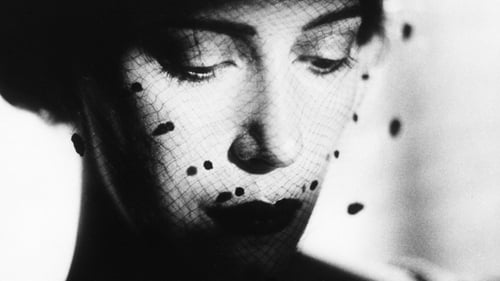
Writer
Now Titus' father has died, the new emperor will be free to marry his beloved Bérénice. Also In love with Bérénice, Titus' friend Antiochus plans to flee Rome rather than face the marriage. However, public opinion about the pairing causes Titus to choose his duty to Rome over his love for Bérénice, and he sends his love rival to tell Bérénice the news...

Director
Now Titus' father has died, the new emperor will be free to marry his beloved Bérénice. Also In love with Bérénice, Titus' friend Antiochus plans to flee Rome rather than face the marriage. However, public opinion about the pairing causes Titus to choose his duty to Rome over his love for Bérénice, and he sends his love rival to tell Bérénice the news...

N°228
Reel 23 of Gérard Courant’s on-going Cinematon series.

Himself
Portrait of "cinéaste" Ruiz, seemingly at his typewriter, in Courant's ongoing "Cinématon" series.

Director
Raul Ruiz filmed the gardens of the Château de Versailles. The first one, French, focuses on the King's Square (a space where everything is arranged in order to be seen). The other one, English, is the exact opposite, because from any point within it, one falls out of view. Within these two constructions, the labyrinth and the concentric circles, Ruiz conceives a 'photo-roman' plot: a husband and his mistress rendez-vous in the English garden (one understands why) and, through a series of accidents and afraid of being seen, he relocates to the other garden.
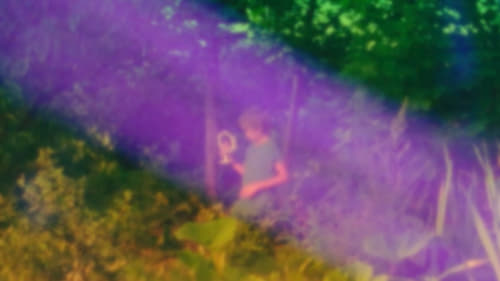
Writer
A parody of anthropology, linguistics, and cultural imperialism. The film follows an unlikely team of linguists into the wilds of an ersatz Patagonia to study the last speakers of a dying language. That language apparently consists of a single word, which therefore means everything.

Director
A parody of anthropology, linguistics, and cultural imperialism. The film follows an unlikely team of linguists into the wilds of an ersatz Patagonia to study the last speakers of a dying language. That language apparently consists of a single word, which therefore means everything.

Screenplay
A series of compounding dramatic situations, drawn from Georges Polti's '36 Dramatic Situations' and acted out in shadowplay and voiceover.

Director
A series of compounding dramatic situations, drawn from Georges Polti's '36 Dramatic Situations' and acted out in shadowplay and voiceover.

Director
A small group of well-to-do vacationers go on a hiking trip into the woods. Foolishly unprepared to deal with Mother Nature and their situation, they wander around lost for days and weeks, becoming more and more fatigued, hungry, and desperate. A brief encounter with a pair of epicureans on a bridge fails to garner them any of the gluttons' feast due to a language barrier. Eventually their party begins to die, and the survivors ration their meat among them, attaching a religious-type ritual to its dispensation.

Director
Ruiz’s short about Pieter Wiersma, a Dutch sculptor who makes intricate sandcastles.

Writer
A man awakens to find himself immersed in a real-life scenario of a board game with an ever expanding cartography.

Director
A man awakens to find himself immersed in a real-life scenario of a board game with an ever expanding cartography.

Writer
In 1978, Ruiz was commissioned to make a television documentary about the French elections from the viewpoint of a Chilean exile in Paris’ eleventh arrondissement. But, contrary to the producers’ expectation, the Left lost. Ruiz seized on this anti-climax to make a documentary about nothing except itself – a film whose central subject is forever lost in digression and ‘dispersal’, harking back to his Chilean experiments of the ‘60s. Its political content is deliberately left negligible: it’s hard to tell at the end who did actually win the election, let alone why.

Director
In 1978, Ruiz was commissioned to make a television documentary about the French elections from the viewpoint of a Chilean exile in Paris’ eleventh arrondissement. But, contrary to the producers’ expectation, the Left lost. Ruiz seized on this anti-climax to make a documentary about nothing except itself – a film whose central subject is forever lost in digression and ‘dispersal’, harking back to his Chilean experiments of the ‘60s. Its political content is deliberately left negligible: it’s hard to tell at the end who did actually win the election, let alone why.

Writer
With his body now devoid of substance and able to fly, N. wanders looking for a way to return to life and reintegrate into the world.

Director
With his body now devoid of substance and able to fly, N. wanders looking for a way to return to life and reintegrate into the world.

Director
Short documentary film on the construction of the new town, Marne-la-Vallée.

Director
The most critically celebrated Rue essay of 1979 was the two-part Petit Manuel d'Histoire de France, directed by the exiled Chilean filmmaker Raul Ruiz, who brought to this commission some of the stylistic fabulism for which he was becoming known in avant-garde cinema.

Writer
A charming tale of murder, perversity and narrative echoes told through shots of barking dogs and a La jetée-like series of stills.

A charming tale of murder, perversity and narrative echoes told through shots of barking dogs and a La jetée-like series of stills.

Director
A charming tale of murder, perversity and narrative echoes told through shots of barking dogs and a La jetée-like series of stills.

Director
The film centers on a Dominican monk named Jérôme (played by one actor in colour and another actor in black-and-white) and his interactions with various higher-ups within the French Catholic Church. Ruiz's intention was to reflect the ideological arguments that plagued Latin American left-wing political parties.
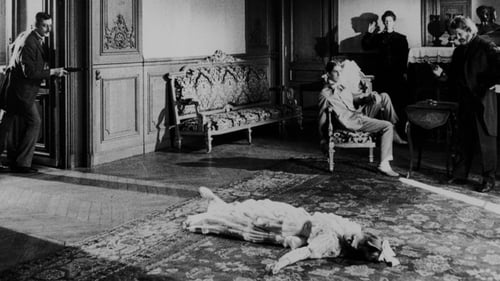
Writer
Dos narradores, uno al que vemos (el coleccionista) y otro al que no vemos (el documentalista), discuten sobre una serie de pinturas. El tema elegido es la obra de un supuesto artista francés, Tonnerre, quien en el siglo XIX habría retratado las diferentes imágenes de una ceremonia secreta que fue posteriormente interrumpida por las autoridades, propiciando un escándalo. Pero no, quizás lo que hizo el artista fue ocultar en esa representación las pistas de otro escándalo, aun mayor, que involucraba a una conocida familia de la época. De esta manera, el coleccionista recorre la geografía del cuadro, buscando los indicios de la verdad oculta.

Director
Dos narradores, uno al que vemos (el coleccionista) y otro al que no vemos (el documentalista), discuten sobre una serie de pinturas. El tema elegido es la obra de un supuesto artista francés, Tonnerre, quien en el siglo XIX habría retratado las diferentes imágenes de una ceremonia secreta que fue posteriormente interrumpida por las autoridades, propiciando un escándalo. Pero no, quizás lo que hizo el artista fue ocultar en esa representación las pistas de otro escándalo, aun mayor, que involucraba a una conocida familia de la época. De esta manera, el coleccionista recorre la geografía del cuadro, buscando los indicios de la verdad oculta.
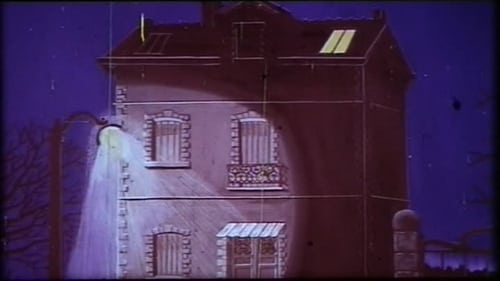
Scenario Writer
Eleven-year old Dora (Nathalie Manet) is forced to chase after clues concerning her inventor-father's death while being chased by thugs working for big industry. Not only is she seeking to understand her father's mysterious death, but some of the clues he gave her indicate that he invented something unusual which the big companies want. She barely escapes being kidnapped and is helped in her search by a magical fairy and an aspiring actress.

Director
Ruiz on the film: "Les Divisions is a documentary about the Château de Chambord and the title comes from the Divisione of Johannes Scotus (Erigena), the ninth century Irish philosopher (who was a 'realist', although the film is more 'nominalist' in characterization of the castle which presents itself as a representation). I say that it is a representation, since it is neither practical for military purposes (too many doors), nor to live in (too many draughts), but only as pure representation. So for the commentary, I tried to imagine how a Renaissance philosopher would view it in a pastiche of a scholastic or gothic text, then a pastiche of Fichte's Vocation of Man and finally a pastiche of Baudrillard."

Chilean refugee
A thriller in which the characters are Latin-American exiles living in Paris. It is also a comedy about artists who play at revolution rather than actually participate in one

Racial, social and cultural aspects of La Paz (called Chuquiago by the Aymaras) seen through four stories.

Writer
La búsqueda de un cuerpo fragmentado y el encuentro con la utopía política.

Director
La búsqueda de un cuerpo fragmentado y el encuentro con la utopía política.

Director
A documentary on the exiled Chilean painter Sotelo which focuses on the painter's voice rather than the paintings themselves.

Screenplay
Poco después de la caída de Salvador Allende en Chile, un artista que simpatiza con la Junta Militar de Gobierno llega a París para cantar sobre lo que él considera la nueva realidad del país. Un grupo de exiliados chilenos se topa con él y deciden secuestrarlo de una manera bastante peculiar: llevándolo de farra. Pronto, sin embargo, resurgen sus vicios más pesados: la incapacidad de organizarse, el asambleísmo inoperante que los obliga a votar hasta para tomar las más nimias decisiones, las diferencias de clase entre los exiliados burgueses y los exiliados obreros y, en particular, la vacía retórica de un discurso político más preocupado por conseguir aplausos (y fondos de ayuda internacional) que de resolver su situación.

Production Director
Poco después de la caída de Salvador Allende en Chile, un artista que simpatiza con la Junta Militar de Gobierno llega a París para cantar sobre lo que él considera la nueva realidad del país. Un grupo de exiliados chilenos se topa con él y deciden secuestrarlo de una manera bastante peculiar: llevándolo de farra. Pronto, sin embargo, resurgen sus vicios más pesados: la incapacidad de organizarse, el asambleísmo inoperante que los obliga a votar hasta para tomar las más nimias decisiones, las diferencias de clase entre los exiliados burgueses y los exiliados obreros y, en particular, la vacía retórica de un discurso político más preocupado por conseguir aplausos (y fondos de ayuda internacional) que de resolver su situación.

Director
Poco después de la caída de Salvador Allende en Chile, un artista que simpatiza con la Junta Militar de Gobierno llega a París para cantar sobre lo que él considera la nueva realidad del país. Un grupo de exiliados chilenos se topa con él y deciden secuestrarlo de una manera bastante peculiar: llevándolo de farra. Pronto, sin embargo, resurgen sus vicios más pesados: la incapacidad de organizarse, el asambleísmo inoperante que los obliga a votar hasta para tomar las más nimias decisiones, las diferencias de clase entre los exiliados burgueses y los exiliados obreros y, en particular, la vacía retórica de un discurso político más preocupado por conseguir aplausos (y fondos de ayuda internacional) que de resolver su situación.

Screenplay
The life of a right-wing housewife in Chile during the prior days to Salvador Allende's military overthrow.

Writer
El filme recoge las acciones de los habitantes del campo en el Sur de Chile y de la CORA (Corporación de la Reforma Agraria). La acción fue filmada en cuatro días y cuatro noches en 1971. Aunque la película fue filmada durante cuatro días en Chile, solo fue terminada en Francia 1973, tras el Golpe Militar.

Producer
El filme recoge las acciones de los habitantes del campo en el Sur de Chile y de la CORA (Corporación de la Reforma Agraria). La acción fue filmada en cuatro días y cuatro noches en 1971. Aunque la película fue filmada durante cuatro días en Chile, solo fue terminada en Francia 1973, tras el Golpe Militar.

Director
El filme recoge las acciones de los habitantes del campo en el Sur de Chile y de la CORA (Corporación de la Reforma Agraria). La acción fue filmada en cuatro días y cuatro noches en 1971. Aunque la película fue filmada durante cuatro días en Chile, solo fue terminada en Francia 1973, tras el Golpe Militar.

The young Marcela leaves her small Chilean village and travels to Santiago in order to find work as a secretary.

Screenplay
María es una joven estudiante de una población santiaguina durante el gobierno de Salvador Allende. En medio de ese álgido ambiente, se enamora de Juan Carlos, un joven de clase alta. Los obstáculos y las diferencias de clase aflorarán, todo acentuado en un contexto clave de la historia de Chile. El filme no alcanzó a estrenarse a tiempo en 1973 debido al golpe. Esperó 19 años para ser estrenada, gracias a que se encontraron unos negativos embodegados que se encontraban intactos. Es considerada una de los filmes más importantes del cine chileno. Basada en la novela homónima de Enrique Lafourcade.

Director
María es una joven estudiante de una población santiaguina durante el gobierno de Salvador Allende. En medio de ese álgido ambiente, se enamora de Juan Carlos, un joven de clase alta. Los obstáculos y las diferencias de clase aflorarán, todo acentuado en un contexto clave de la historia de Chile. El filme no alcanzó a estrenarse a tiempo en 1973 debido al golpe. Esperó 19 años para ser estrenada, gracias a que se encontraron unos negativos embodegados que se encontraban intactos. Es considerada una de los filmes más importantes del cine chileno. Basada en la novela homónima de Enrique Lafourcade.

Director
Registro de acontecimientos ocurridos en distintos lugares de Chile con anterioridad y posteridad a las elecciones de 1970, en las cuales triunfa Salvador Allende. La película oscila entre la ficción y el documental. Raúl Ruiz no considera propia esta obra, en términos creativos

Writer
En un recorrido por los submundos del Santiago nocturno de los setenta, a través de un grupo de intelectuales de medio pelo – escritores que no publican, músicos que no sacan discos y poetas que escriben en servilletas – entramos no sólo en la bohemia, sino en la marginalidad intelectual de comienzos de los 70.

Director
En un recorrido por los submundos del Santiago nocturno de los setenta, a través de un grupo de intelectuales de medio pelo – escritores que no publican, músicos que no sacan discos y poetas que escriben en servilletas – entramos no sólo en la bohemia, sino en la marginalidad intelectual de comienzos de los 70.

Director
Raoul Ruiz shot this film on March 28th, 1971, during the big peasant march in Temuco, Chile, when the bill that gave the full citizenship and civil rights to the Mapuche Indio people was approved. Raoul Ruiz listens to their painful stories.

Writer
Una periodista va a hacer un reportaje sobre una isla del Pacífico, antigua colonia penitenciaria que se autoproclamó república independiente. Ella se encuentra con el dictador social demócrata Llanes y observa el funcionamiento de esta sociedad conformada exclusivamente por hombres uniformados que parecieran no existir y se comportan según la voluntad de Llanes.

Director
Una periodista va a hacer un reportaje sobre una isla del Pacífico, antigua colonia penitenciaria que se autoproclamó república independiente. Ella se encuentra con el dictador social demócrata Llanes y observa el funcionamiento de esta sociedad conformada exclusivamente por hombres uniformados que parecieran no existir y se comportan según la voluntad de Llanes.

Writer
Tito, un simplón e irresponsable provinciano, llega a Santiago para ponerse a las órdenes de Rudy, un arribista negociante de coches. Durante un fin de semana, mientras Rudy espera que Tito llegue con los documentos necesarios para cerrar una venta, éste, en lugar de entregárselos, se dedica a fanfarronear con su hermana Amanda, una bailarina de streaptease que en los ratos libres oficia de prostituta. Además aparece un profesor de Angol que se une a la parranda. Los personajes buscan una felicidad utópica entre bares, callejuelas y hoteles de mala muerte.

Director
Tito, un simplón e irresponsable provinciano, llega a Santiago para ponerse a las órdenes de Rudy, un arribista negociante de coches. Durante un fin de semana, mientras Rudy espera que Tito llegue con los documentos necesarios para cerrar una venta, éste, en lugar de entregárselos, se dedica a fanfarronear con su hermana Amanda, una bailarina de streaptease que en los ratos libres oficia de prostituta. Además aparece un profesor de Angol que se une a la parranda. Los personajes buscan una felicidad utópica entre bares, callejuelas y hoteles de mala muerte.

Editor
Absurdist short about a man with a suitcase and a man inside that suitcase.

Writer
Absurdist short about a man with a suitcase and a man inside that suitcase.

Director
Absurdist short about a man with a suitcase and a man inside that suitcase.
